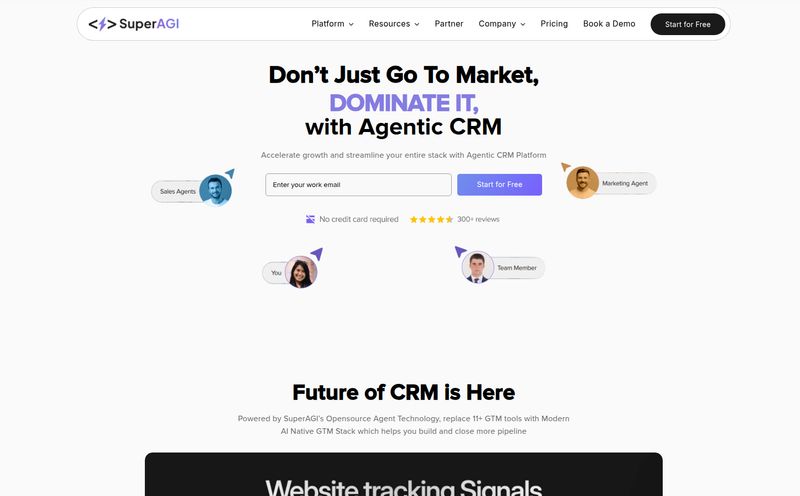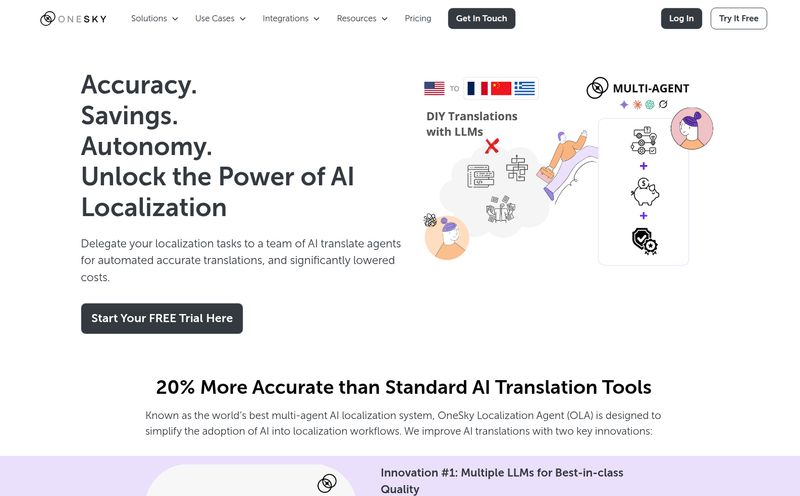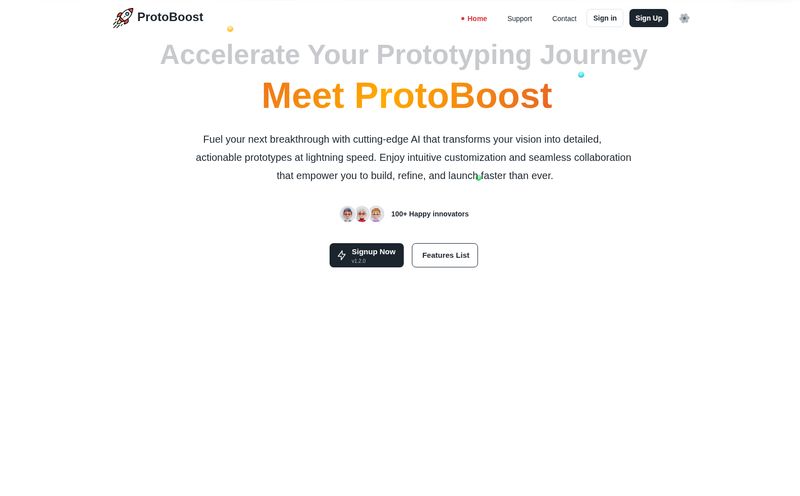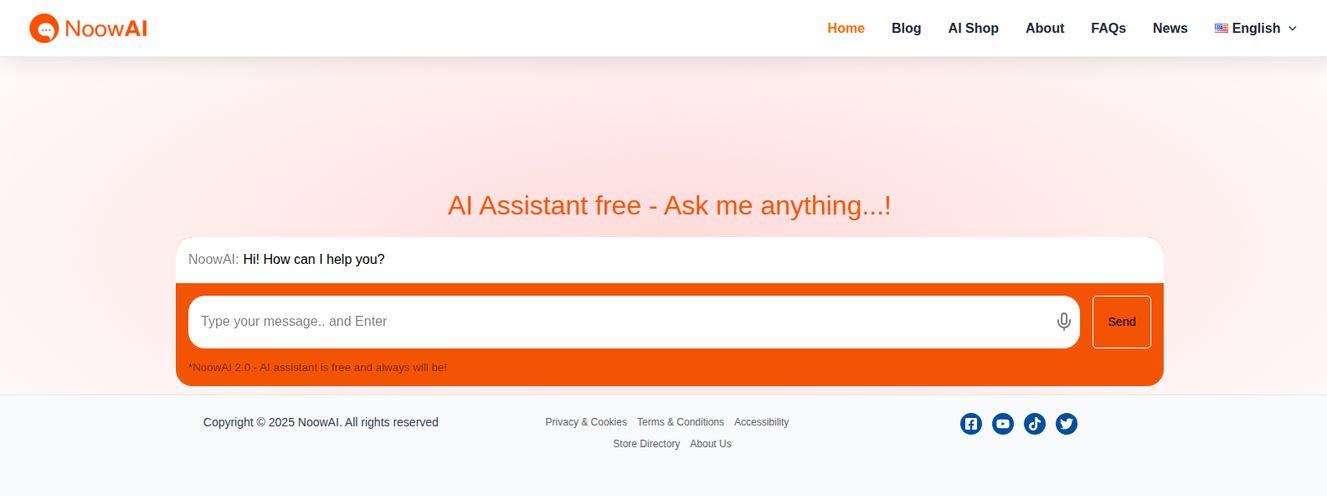If you’ve ever been on the hiring side of the table, you know the feeling. You post a job, feel a glimmer of hope, and then… the floodgates open. You’re buried under a mountain of PDFs, each one whispering promises of being “the one.” It's what I call the Resume Black Hole. A place where good candidates get lost and your afternoons go to die.
I remember one time a few years back, we were hiring for a junior marketing role. We received over 300 applications in 48 hours. My entire week was shot, just sifting through resumes that were, to put it mildly, not a fit. There was the guy whose only experience was as a 'sandwich artist' and the one who listed 'breathing' as a skill. I’m not kidding. By the end, my eyes were glazed over, and I'm pretty sure I accidentally shortlisted a golden retriever. We needed a better way.
So, when I first heard about tools like SortResume.ai, my inner cynic and my exhausted inner-recruiter both sat up and paid attention. An AI hiring assistant that promises to do the heavy lifting? To sift, rank, and analyze candidates for you? Color me intrigued. I had to see if it was just another piece of shiny tech or a genuine game-changer for businesses drowning in resumes.
So, What Exactly is This Digital Hiring Co-Pilot?
At its core, SortResume.ai is an AI-powered platform designed to take the soul-crushing part of hiring—manual resume screening—off your plate. You feed it a job description and a pile of resumes, and its AI gets to work. It’s not just looking for keywords, which is what older, dumber applicant tracking systems (ATS) do. No, this thing uses a more advanced AI to understand the context, the qualifications, and the overall fit of a candidate.
It then ranks every single applicant against your criteria and gives you a tidy, prioritized list of who you should actually spend your precious time talking to. It’s like having a hyper-efficient, caffeine-fueled HR intern who never gets tired or complains. A pretty compelling pitch, right?
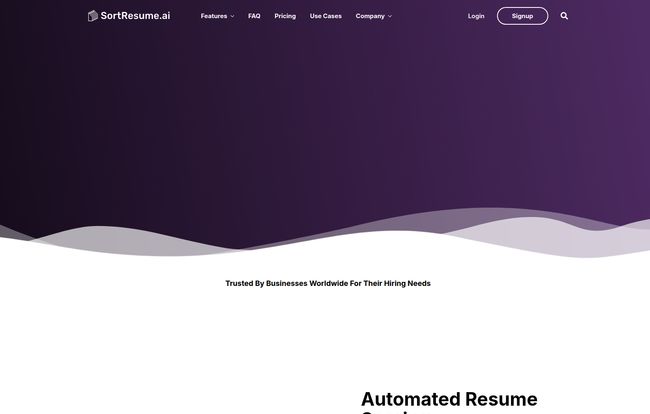
Visit SortResume.ai
The Magic Under the Hood
The process is refreshingly straightforward. You give the system your job description—and I mean a good one, more on that later—and it becomes your source of truth. The AI uses this to build a model of your ideal candidate. Then, as resumes come in, it scores each one based on how well they align with that model. Things like skills, experience, education, and other custom criteria you set are all taken into account.
What I found particularly interesting was the promise of “advanced reasoning.” This suggests it’s not just a simple checklist. It’s looking at the nuance between “managed a team” and “led a department-wide strategic initiative.” For anyone who’s had to read between the lines on a resume, you know how different those two things are.
More Than Just a Score
Here’s what really separates it from a basic ATS. SortResume.ai doesn't just give you a score and a pat on the back. It provides a full analysis report for each candidate. It breaks down why someone scored the way they did, highlighting their strengths and where they might fall short according to your job description. This is huge. It forces a level of consistency into the process that’s almost impossible to maintain when you're on your 75th resume of the day and your brain is turning to mush.
The Good, The Bad, and The AI
No tool is perfect, especially not in the wild west of AI. So after playing around with it, here's my brutally honest take.
What I Genuinely Liked
The most obvious win is time. The amount of hours this can claw back for a small business owner, a startup founder, or an overworked HR department is... its just huge. It turns a multi-day slog into a focused, hour-long review session. It also minimizes that classic human error of accidentally skipping over a great resume because it was formatted weirdly or because you were distracted by a Slack notification. The AI is a neutral party; it just evaluates based on the data you gave it, ensuring every candidate gets the same fair shake. At least, in theory.
Where I'd Be a Little Cautious
Okay, let's talk about the elephant in the room: AI bias. If your job description has inherent biases, the AI will learn and amplify them. This isn't a magic wand that creates perfect, unbiased hiring. It's a mirror that reflects the instructions you give it. The old SEO mantra of “Garbage In, Garbage Out” applies here more than ever. You absolutely must write clear, inclusive, and well-defined job descriptions for this tool to be effective and fair.
My other concern is the potential to miss a diamond in the rough. What about the candidate with a non-traditional background who has all the right skills but doesn't present them in a conventional way? I’d worry an AI might overlook that spark, that unquantifiable quality you only spot with human intuition. That’s why I see this as a human-in-the-loop tool. It’s your first-pass filter, not your final decision-maker. You still need to do the work of actually interviewing and connecting with people.
Let's Talk Money: SortResume.ai Pricing Plans
Alright, the all-important question: what’s this going to cost me? The pricing structure is pretty clear, which I appreciate. They offer a few tiers aimed at different levels of hiring volume.
| Plan | Price | Key Features | Best For |
|---|---|---|---|
| Free | $0 / month | 10 resumes/month, Basic reasoning | Individuals or very small teams wanting to test the platform. |
| Standard | $119 / month | 100 resumes/month, API Access, Advanced reasoning | Growing startups and small businesses with regular hiring needs. |
| Premium | $239 / month | 500 resumes/month, 5 team seats, Advanced reasoning | Established HR departments and companies with high-volume recrutiment. |
Note: They also mention a 20% saving on annual plans, which is pretty standard stuff.
My take? The Free plan is a demo, plain and simple. 10 resumes won't get you very far, but it's perfect for kicking the tires and seeing if you like the interface. The Standard plan feels like the sweet spot for most small to medium-sized businesses. 100 resumes a month is a decent volume, and the upcoming API access and integrations could make it a core part of a modern hiring workflow. The Premium plan is clearly for the big players or recruitment agencies who live and breathe high-volume sourcing.
So, Is SortResume.ai Actually Worth It?
After digging in, my answer is a solid, confident “yes, but...”.
Yes, it's worth it if you value your time and sanity. It's worth it if you're trying to build a more consistent and structured hiring process. It's an incredible tool for cutting through the noise and allowing you to focus on what matters: engaging with the most promising candidates.
The 'but' is that you have to use it wisely. It's not a self-driving car for your HR department; it's an advanced cruise control with lane assist. You still need to be the one steering. You need to write great job descriptions, you need to review the AI’s suggestions with a critical human eye, and you need to be the one to ultimately build a connection with your future team members.
If you go in with that mindset, a tool like SortResume.ai isn't just a time-saver. It's a strategic advantage that lets you hire smarter, faster, and maybe, just maybe, avoid shortlisting any more golden retrievers.
Frequently Asked Questions
Is SortResume.ai hard to set up?
Not at all, in my experience. The interface is clean and intuitive. The main “work” is on your end—crafting a detailed job description. Once you have that, you're pretty much ready to go. You just create a job, upload resumes, and let the AI do its thing.
Can AI hiring tools like this be biased?
Yes, absolutely. This is a critical point. The AI is only as good and as unbiased as the data you give it. If your job description contains biased language or criteria, the AI will replicate that bias in its rankings. It's crucial to use inclusive language and focus on objective, skill-based criteria.
What happens if I go over my monthly resume limit?
Based on their pricing page, you can add extra credits on any plan. The cost per extra resume gets cheaper as you move up the tiers, from $2 on the Free plan down to $1.25 on the Premium plan. This offers some nice flexibility.
Is the Free plan good enough to get started?
It's perfect for a test drive. With only 10 resumes per month, you won't be able to run a full hiring campaign, but it's more than enough to understand the workflow, see the analysis reports, and decide if a paid plan is a good investment for your team.
Does it integrate with other HR software?
The pricing plans for Standard and Premium mention “Integrations (coming soon).” This is a big deal. The ability to pipe candidates directly from a job board or into another ATS would make this incredibly powerful. It's definitely a feature to watch.
Can I cancel my subscription easily?
According to their FAQ, you can upgrade or change your plan at any time through your account, and the change takes effect immediately. This suggests managing your subscription is a self-service process, which is always a good sign.
